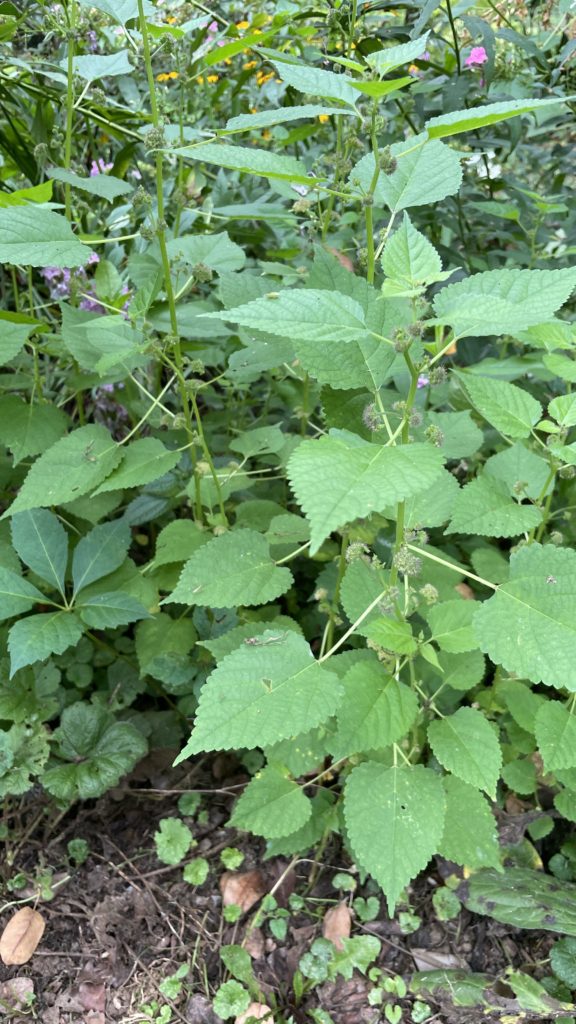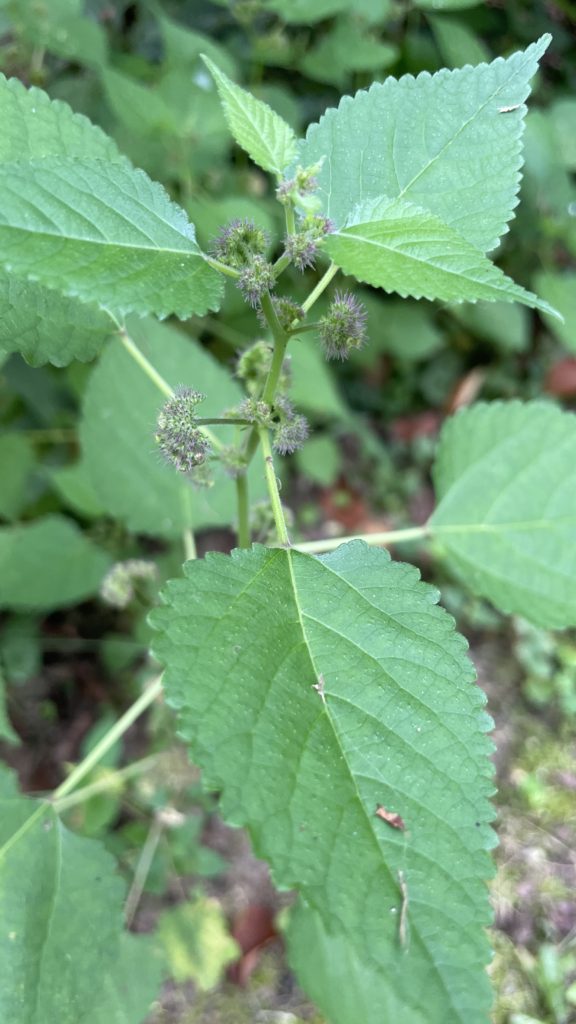
Mulberryweed (Fatoua villosa) is not related to mulberry trees but its leaves look a little like mulberry foliage. A native of eastern Asia, it was introduced into North America in the latter half of the 20th century. Currently, it is seen in the Southeastern United States from Maryland to Florida, west to Texas and Oklahoma, north to the Ohio (zones 5-11).
Gardeners may argue whether it’s worse than nutsedge (Cyperus rotundus), creeping Charlie (aka ground ivy), crabgrass, or any other you wish to list. Even the U.S. nursery industry is concerned. It has gotten into growing (potting) media, and growers are warning their customers (garden centers and landscapers) to inspect shipped plants after purchase.
Mulberryweed is an erect, branched summer annual. Leaves are alternate, and roughly triangular in outline with toothed margins. Flowers are borne in feathery clusters in the leaf axils. Flower clusters are purple when young, fading to dark brown with age. Plants flower from late spring through early fall and die after frost.
If you mow over this weed, new growth branches and stays low and grows horizontally. It produces tons of seed and produces multi-generations over the growing season. New seedlings may flower and fruit within 12 days of reaching the 2-leaf growth stage. Learn to pull it out immediately. Individual flowers are inconspicuous, white to cream colored, and are not persistent. Seeds are forcefully expelled at least 4 feet.

Seeds germinate from early spring through late fall, resulting in many generations per year. Consequently, although well managed by certain pre-emergence herbicides, populations may continue to build in the absence of aggressive sanitation programs. Herbicide efficacy rankings for this species are based on limited experimental data.
From personal experience, mulberryweed has really become a menace in our landscape. I’ve been sloppy pulling and leaving weeds in place to decompose – a big mistake. I am now carting all weed debris away.
Thanks to Mr. Jason Reeves, Horticulturist at the West TN AgResearch & Education Center in Jackson, TN, for initially identifying mulberryweed.

 Posted in
Posted in 
